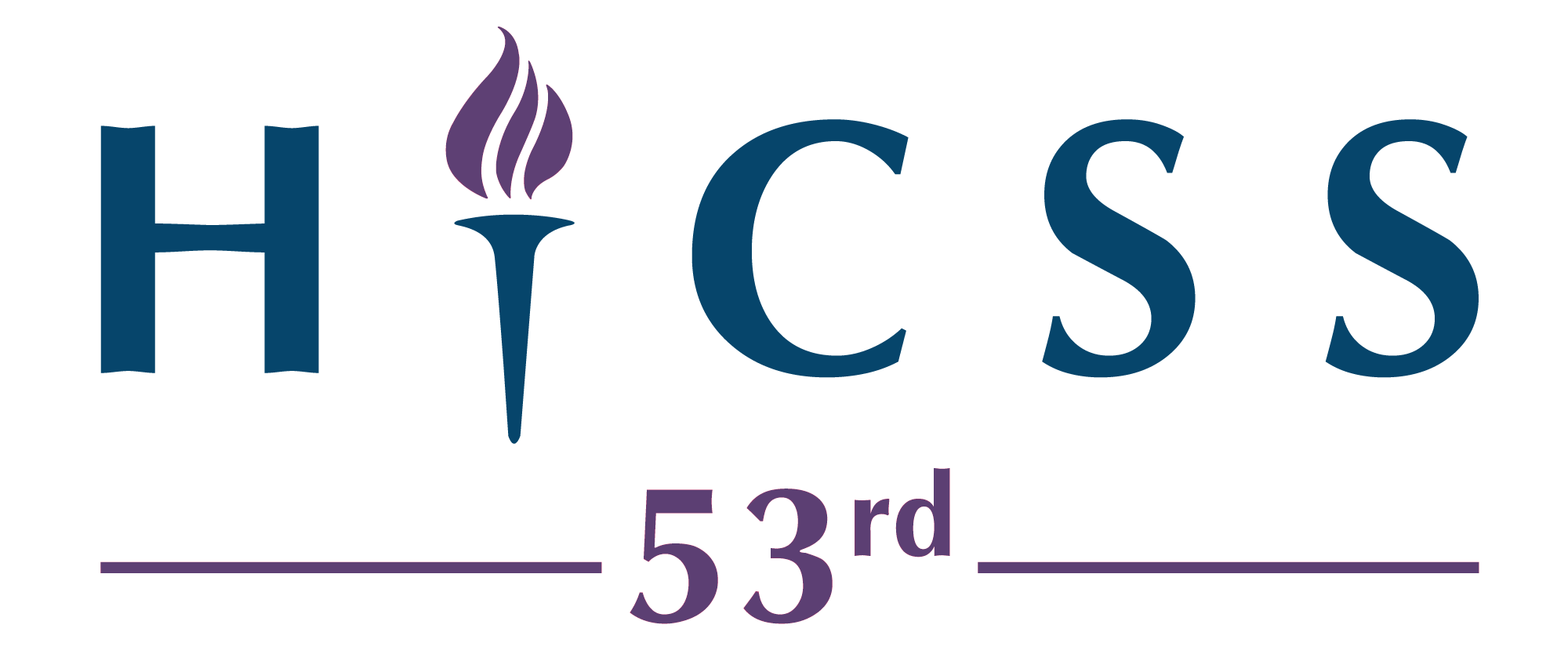HICSS - 53 Digital Government Track
53rd Hawaii International Conference on System Sciences
January 7-10, 2020 - Grand Wailea, Maui, HI, USA
Overview
Minitracks
Tutorials and Workshops
Other Links
Emerging Topics in Digital Government



Description
The Digital Government Emerging Topics Mini-Track provides a home for incubating new topics and trends in Digital Government research. Digital Government as an academic field is evolving towards the Next Generation Digital Government; new directions of research and practice are emerging while others are becoming accepted as foundational. These developments take place at the crossroads of different academic disciplines and in close connection to the practices in governments around the globe. However, the foundations of the field still need to be spelled out more explicitly and rigorously. This mini-track invites papers positioned in relation to the foundations of Digital Government contributing to the evolution of the field, to clarifications and conceptualisations or addressing novel issues, trends and uses of technology.
Submissions must speak specifically to the emerging nature of the topic and how the research presented builds new understanding by relating the research to the central developments in the field of Digital Government. Topics and research areas include but are not limited to:
- The conceptual and practice-based boundaries and foundations of the field of Digital Government.
- Agendas for Digital Government research and research roadmaps
- Deep and innovative theoretical reflections about Digital Government
- Foundations and research methodologies/evaluation frameworks for the study of Digital Government
- The nature of inter- and multidisciplinary research designs in Digital Government
- Cross-border Digital Government / Interoperable Digital Government
- Ethics of Digital Government from theoretical and practical views
- Digital Government education and competences
- ICT-enabled policy making and Digital Government policy
- Robotic technology in and for government
- Artificial Intelligence in and for government
- Distributed ledger technologies in Digital Government
- Participatory approaches in government, for instance co-production
- Trust in and safe use of Digital Government
- Legal implications towards Next Generation Digital Government
- Comparative studies in the field of Digital Government
- Governing Digital Government initiatives
- Emergent technologies and Digital Government
- Other topics as appropriate to the purposes of the mini-track
The papers submitted to this minitrack must be new and unpublished. We welcome papers from different settings and sectors in digital government and look more for innovative and creative analyses than best practices. We will also consider strong conceptual and empirical analysis (both qualitative and quantitative) rather than descriptive cases or opinion pieces.
Minitrack Leaders
Robert Krimmer, PhD, is tenured Full Professor of e-Governance within Ragnar Nurkse Department of Innovation and Governance at the Faculty of Social Science, Tallinn University of Technology, Estonia. Robert’s research is focused on electronic participation and democracy, as well as e-voting, the transformation of the public sector, and all issues further developing a digital society. Robert is also Associate Editor of the international scientific journal Government Information Quarterly (GIQ), where he is in charge of participation issues. Robert coordinates TOOP, the EU H2020 large-scale pilot on exploring and demonstrating the feasibility of the once-only principle involving 50+ partners from 21 countries inside and outside the European Union.
Andriana Prentza, PhD, is Full Professor of Software Engineering at the Department of Digital Systems of the University of Piraeus, Greece. Andriana received her Diploma in Computer Engineering and Information Sciences and her M.Sc. in Biomedical Engineering from the University of Patras, Greece, and her Ph.D. degree from the Eindhoven University of Technology, Eindhoven, the Netherlands. She has been very actively involved in a number of European and National R&D programs focusing on Information Communication Technologies (ICT) projects and she serves as expert evaluator and reviewer for the European Commission and national R&D programmes. Andriana’s current research interests include Software Engineering techniques and methodologies for the development and evaluation of software systems and services in the areas of eGovernment and eHealth. She is a Senior Member of IEEE and a member of the Technical Chamber of Greece. She has participated in the PEPPOL Large Scale Pilot (LSP) project focusing on interoperability in Public Procurement and coordinated the Greek pilots, she participated in the e-SENS LSP, as Piloting Deputy Leader and as Head of Beneficiary for Greece focusing on interoperable building blocks for public services, and she is currently participating in the TOOP LSP, as Architecture Leader focusing in the feasibility of the once-only principle.
Ramon Gil-Garcia, PhD, is an Associate Professor of Public Administration and Policy and the Research Director of the Center for Technology in Government, University at Albany, State University of New York (SUNY). Dr. Gil-Garcia is a member of the Mexican Academy of Sciences and of the Mexican National System of Researchers. In 2009, he was considered the most prolific author in the field of digital government research worldwide and in 2013 he was selected for the Research Award, which is “the highest distinction given annually by the Mexican Academy of Sciences to outstanding young researchers.” More recently, Dr. Gil-Garcia was named “One of the World’s 100 Most Influential People in Digital Government in 2018” by Apolitical, which is a nonprofit organization based in London in the United Kingdom. Currently, he is also a professor of the Business School at Universidad de las Américas Puebla in Mexico. Dr. Gil-Garcia is the author or co-author of articles in prestigious international journals in Public Administration, Information Systems, and Digital Government and some of his publications are among the most cited in the field of digital government research worldwide. His research interests include collaborative electronic government, inter-organizational information integration, smart cities and smart governments, adoption and implementation of emergent technologies, information technologies and organizations, digital divide policies, new public management, and multi-method research approaches.
Co-Chairs
Robert Krimmer
(Primary Contact)
Ragnar Nurkse Department of Innovation and Governance
Tallinn University of Technology
Estonia
Email: robert.krimmer@taltech.ee
Andriana Prentza
Department of Digital Systems,
University of Piraeus, Greece
Email: aprentza@unipi.gr
J. Ramon Gil-Garcia
Center for Technology in Government & Department of Public Administration and Policy
University at Albany, SUNY, USA
Email: jgil-garcia@ctg.albany.edu
